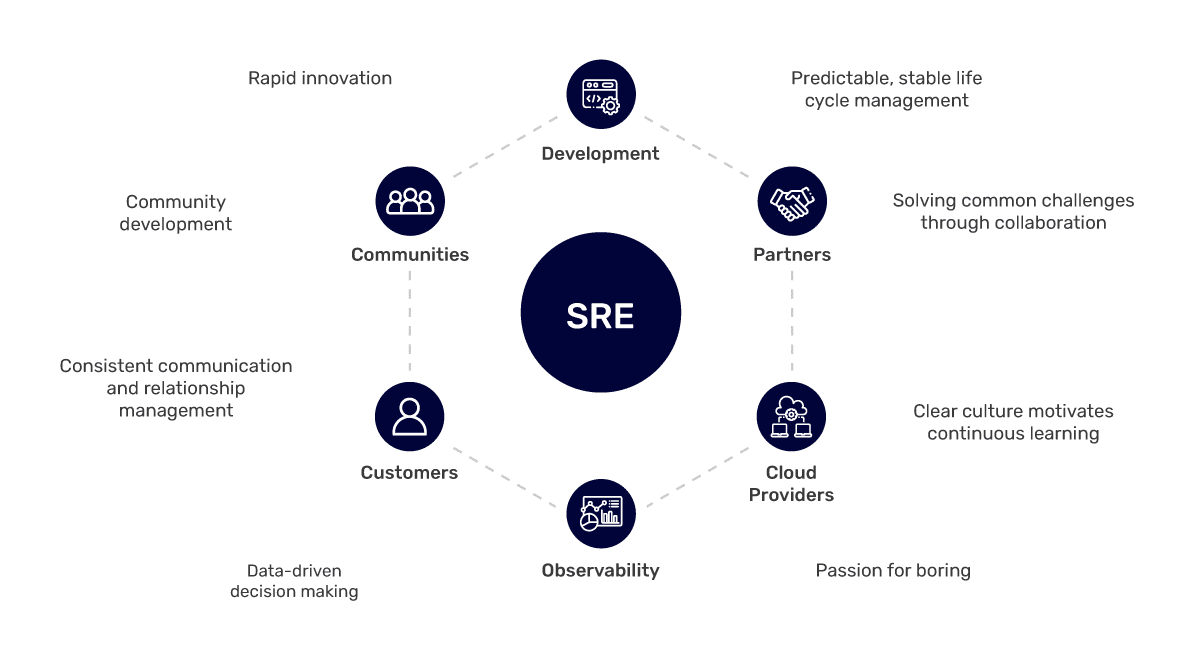Mindbowser’s site reliability engineering services empower you to focus on your core business objectives, confident that your digital infrastructure is safe.
Our process lies a dynamic framework designed to propel your success. We orchestrate our Site Reliability Engineering (SRE) with a commitment to rapid innovation, fostered by a thriving community development ethos.

Delivering the best solutions starts with understanding the business needs. Our approach is tailored to meet your unique goals and objectives.
Site reliability engineering (SRE) solves various problems related to the reliability and availability of websites and applications. Some specific problems that SRE can solve include:
The key aspect of SRE is the focus on automation, monitoring, and continuous improvement. SRE teams use automation to manage and monitor their systems, ensuring they are always up and running and quickly responding to any issues.
The critical success factors in SRE combine technical and cultural factors. On the technical side, SRE teams must have robust automation and monitoring tools in place, as well as the ability to quickly respond to incidents and resolve issues. On the cultural side, SRE teams must have a collaborative and proactive approach to problem-solving, as well as a commitment to continuous improvement.
The benefits of SRE are many, including improved reliability, availability, and scalability of systems, reduced downtime and outage incidents, increased efficiency and productivity, and improved user experience. Additionally, SRE can help organizations save costs by reducing manual toil and streamlining processes. Overall, SRE is a critical function for organizations that rely on large-scale distributed systems to operate their businesses.
Companies can ensure a successful partnership with their SRE provider by establishing clear goals and expectations, maintaining open communication, and regularly reviewing and evaluating progress.
Yes, regardless of the scale of the system, site reliability engineering concepts may be used. Even small-scale applications and startups may benefit from the fundamental ideas of dependability, automation, and monitoring, even though exact techniques may vary based on the size and complexity of the application.
The key principles of site reliability engineering include error budgeting (limiting permissible downtime), blameless culture (encouraging learning from failures rather than blaming individuals), automation, monitoring, and learning from incidents through post-mortems.